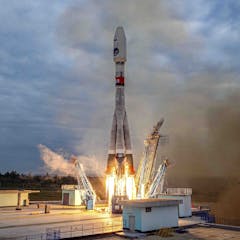
Articles on Roscosmos
Displaying all articles

Japan’s space agency is landing its first lunar probe this week. This makes the Moon an increasingly busy target for spacefaring nations – with conflicting political stances among them.

Space missions are still difficult, dangerous and risky – but it’s still early days in the human journey beyond our planet.

China has made significant advances in space exploration on its own steam. It doesn’t need a partnership with Russia.

The head of the Russian space agency announced that the country will withdraw from the International Space Station after 2024. A space policy expert explains what this means and why it’s happening now.

The impact of Russia’s invasion of Ukraine reaches into outer space, as Russia threatens to stop co-operating on supplying and participating in space missions.

What happens to the International Space Station when tensions on Earth rise? A space policy expert explains how the ISS is run and how Russian aggression has threatened its operation in the past – and now.

After two decades as a home to astronauts, the International Space Station still has plenty to teach us about how humans can live away from Earth.

This hot, acidic neighbor with its surface veiled in thick clouds hasn’t benefited from the attention showered on Mars and the Moon. But Venus may offer insights into the fate of the Earth.

Whatever America’s exact strategy in space, it doesn’t seem to involve investing in a new International Space Station
